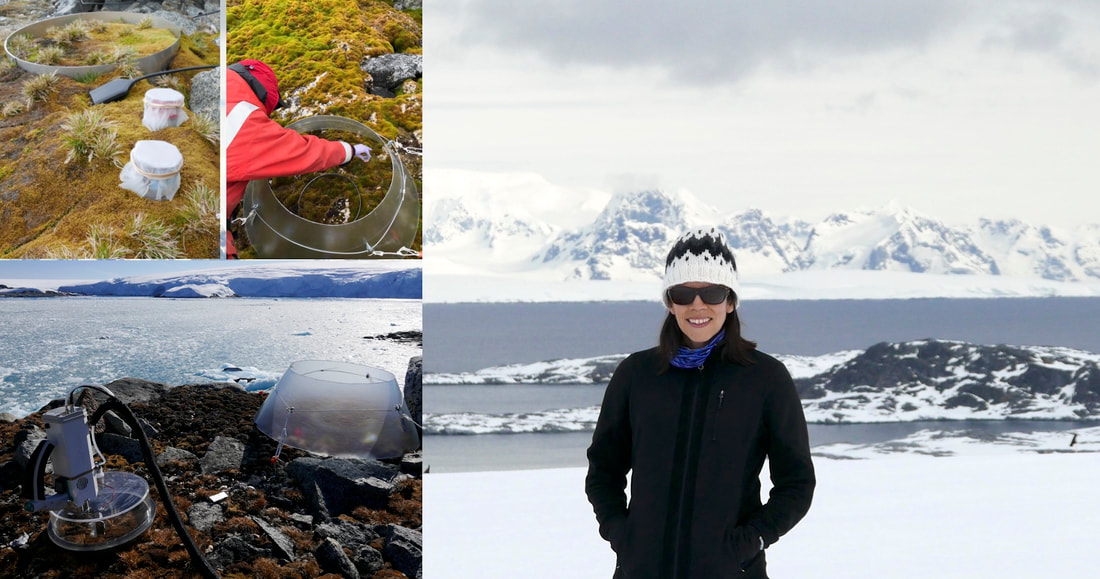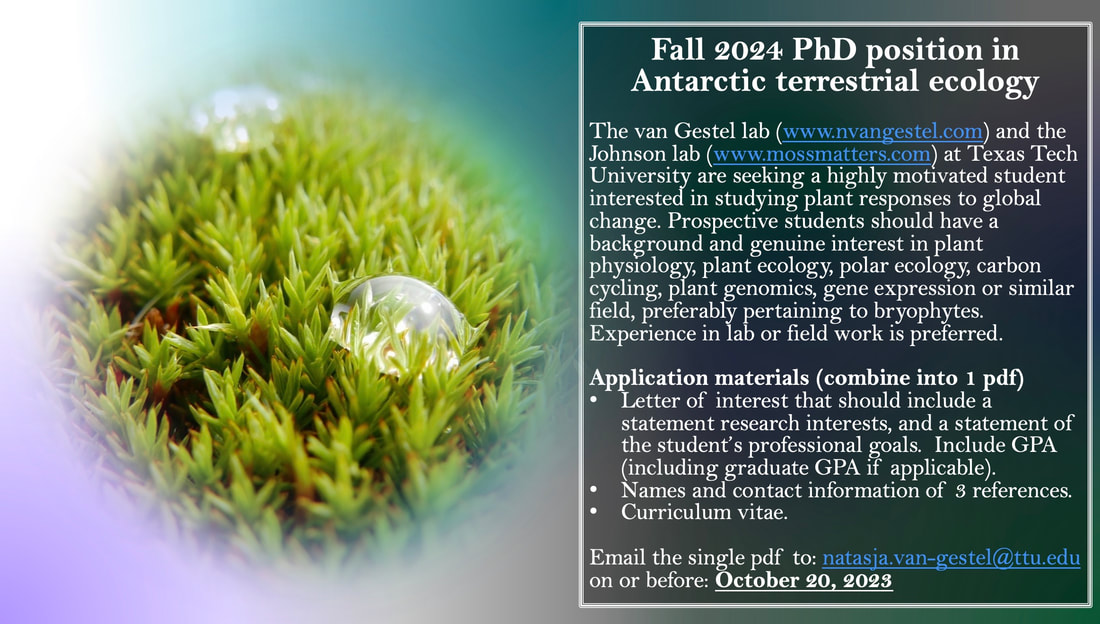Graduate Research Opportunity
Open PhD position in Antarctic terrestrial ecology for Fall 2024
Description
The van Gestel lab and the Johnson lab at Texas Tech University are seeking a highly motivated student interested in studying plant responses to global change. The student will be involved in a warming experiment on the western Antarctic Peninsula, one of few places in Antarctica where plants can grow. The overarching question is how warming ultimately affects carbon balance: will Antarctic ecosystems become more of a carbon sink or source with warming? What moss species are the most strongly affected? How is gene expression of mosses altered by warming. These and other questions will be addressed.
Pending logistical constraints in terms of travel, the student will be conducting field and lab work in Antarctica for part of the austral summer.
For more info about my Antarctic research, please visit my Antarctic blog for austral summers of 2018-2019 and 2022-2023 .
Qualifications
Prospective students should have a background and genuine interest in plant physiology, plant ecology, polar ecology, carbon cycling, plant genomics, gene expression or similar field, preferably pertaining to bryophytes. Experience in lab or field work is preferred.
Start date for degree
Fall 2024
Application materials
1) Letter of interest that should include a statement research interests, and a statement of the student’s professional goals. Include GPA (including graduate GPA if applicable).
2) Names and contact information of 3 references.
3) Curriculum vitae.
Email the materials as a single pdf to: [email protected] on or before: October 20, 2023
Description
The van Gestel lab and the Johnson lab at Texas Tech University are seeking a highly motivated student interested in studying plant responses to global change. The student will be involved in a warming experiment on the western Antarctic Peninsula, one of few places in Antarctica where plants can grow. The overarching question is how warming ultimately affects carbon balance: will Antarctic ecosystems become more of a carbon sink or source with warming? What moss species are the most strongly affected? How is gene expression of mosses altered by warming. These and other questions will be addressed.
Pending logistical constraints in terms of travel, the student will be conducting field and lab work in Antarctica for part of the austral summer.
For more info about my Antarctic research, please visit my Antarctic blog for austral summers of 2018-2019 and 2022-2023 .
Qualifications
Prospective students should have a background and genuine interest in plant physiology, plant ecology, polar ecology, carbon cycling, plant genomics, gene expression or similar field, preferably pertaining to bryophytes. Experience in lab or field work is preferred.
Start date for degree
Fall 2024
Application materials
1) Letter of interest that should include a statement research interests, and a statement of the student’s professional goals. Include GPA (including graduate GPA if applicable).
2) Names and contact information of 3 references.
3) Curriculum vitae.
Email the materials as a single pdf to: [email protected] on or before: October 20, 2023


